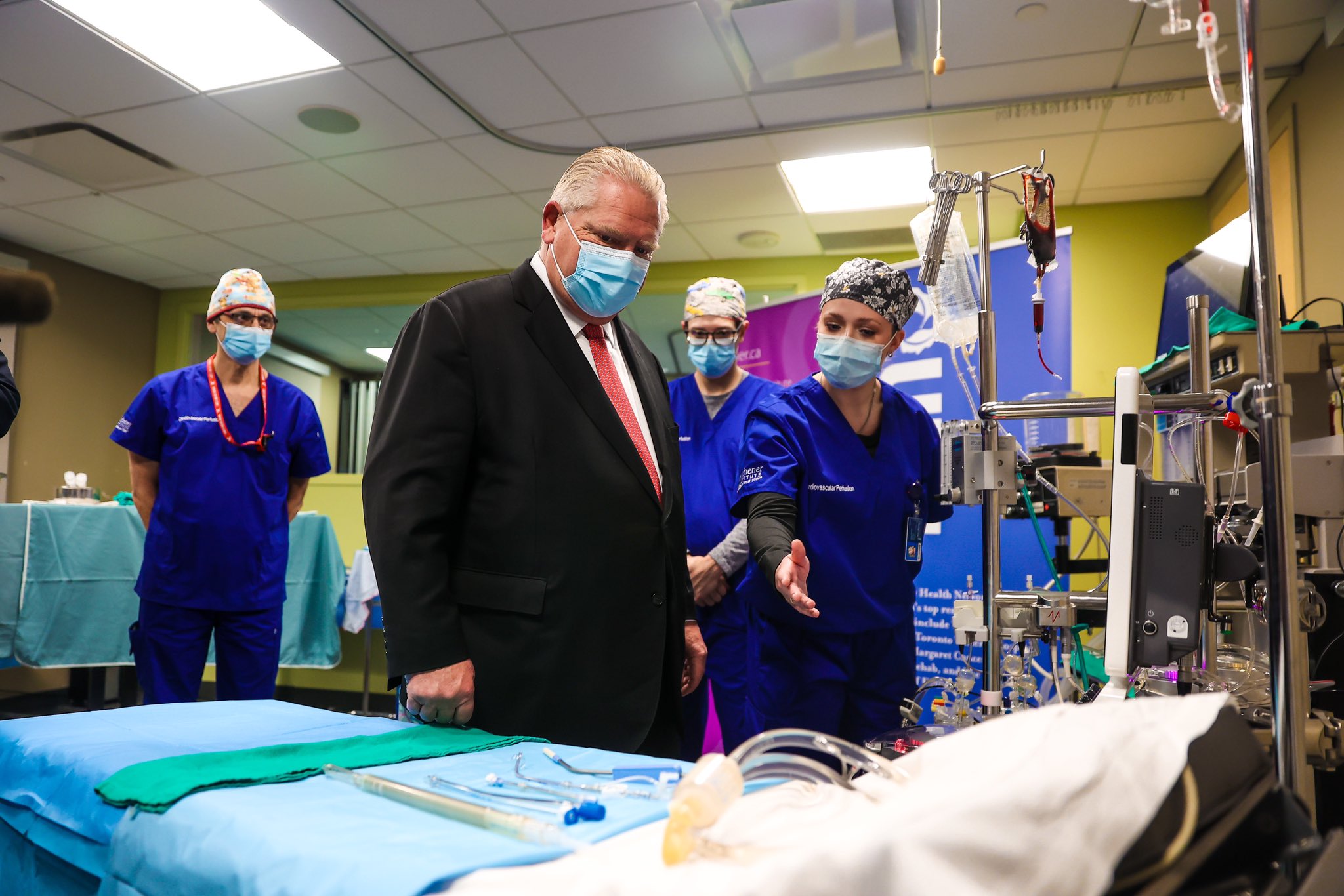Ontario’s six-year health care spending plan is expected to fall short of what’s needed to meet the demands of the system.
According to a review by the Financial Accountability Office of Ontario (FAO), the province will require $93.8 billion to address shortages in the health sector. But the money being invested is $21.3 billion below the expected funding requirements.
NDP health critic France Gélinas said there shouldn’t be a deficit because the province has the money to spend.
“This is a big amount of money, but it’s small compared to the amount of money that the government is stashing away,” she said. “Every amount that is not spent on health care means that people wait longer in our emergency rooms to get the care they need. It means that people wait longer to get the surgeries they need.”
The provincial government has proposed adding money to existing health sector programs and expansion commitments to address surgical backlogs, staffing shortages, and hospital capacities. However, the review highlighted that the demand is expected to grow every year and will create a bigger offset if the proper investments are not made.
To meet the forecasted cost, the FAO recommended that the province either take money from contingency funds or make changes to its proposed plan.
In response to the solutions given by the review, Gélinas highlighted last week’s FAO third quarter report which listed more than $605 million of unspent funds from the federal government to be used towards COVID-19 response programs.
The unspent funds could be used to reduce the deficit, but the government has not yet confirmed where that money will be spent, the FAO said in its report.
“The federal government gave it to [the province] for healthcare, and yet they did not spend it on healthcare. It’s shameful when you have so many people right now who feel that the healthcare system is not meeting their needs,” Gélinas said.
However, Gélinas said solutions begin with improving the treatment of Ontario’s healthcare workers.
“The last three years, working through the pandemic, was tough, really difficult,” she said. “Many of them got sick but needed to go to work anyway. They were mandated to work overtime.
“Respect the people that are there, pay them a fair wage, bring back the people that were so discouraged and felt so disrespected that they left the system,” Gélinas said.
Raisa Deber, a professor at the University of Toronto’s Institute of Health Policy, said the province should not focus on providing “an exact number.” Instead, they need to evaluate the needs in Ontario and be aware of what could be needed in the future to avoid repeating mistakes of the past.
“One of the things that are catching up with Ontario now and a number of the other provinces is that they really cut back on how many hospital beds they had because they didn’t want to have excess capacity,” she said. “When the pandemic hit, they suddenly found that they didn’t have the resources they needed.”
Health Minister Sylvia Jones did not respond to an email request for comment.
Chief Medical Officer of Health Dr. Kieran Moore echoed Deber’s concerns in his annual report. He highlighted the need for “preparedness” at a level that will have Ontarians ready for the “next pandemic.”
To meet this goal, the report prioritized a need for further investments in the public health sectors. Moore said he doesn’t want to see a cutback of funds in health care.
“As we have seen in the past, public health resources are often scaled back after health emergencies as governments move to address other priorities,” he said in the report. “We need to invest in public health up-front and consistently. This investment will be cost-saving and provide many long-term social and economic benefits.”
The FAO review has outlined that the gap for what’s needed to fund health care through 2028 could be higher than what’s forecasted if the wage-suppressing legislation, Bill 124, remains struck down. Premier Doug Ford’s government is appealing the Superior Court of Ontario’s decision made to strike down the bill, which limits wage increases of provincial workers to one per cent.
Gélinas criticized Ford for appealing Bill 124 and said the gap between what’s needed and what the “government is willing to spend” will get bigger. She stressed if there is a focus on healthcare workers, some of the shortfalls may decrease.
“Sit down and negotiate with them and give them hope. Give them respect. You will be amazed at what they will do. They are human beings,” she said.
“We have solutions right here in Ontario. It will require a little bit of money, yes, but we have the money,” Gélinas said.

